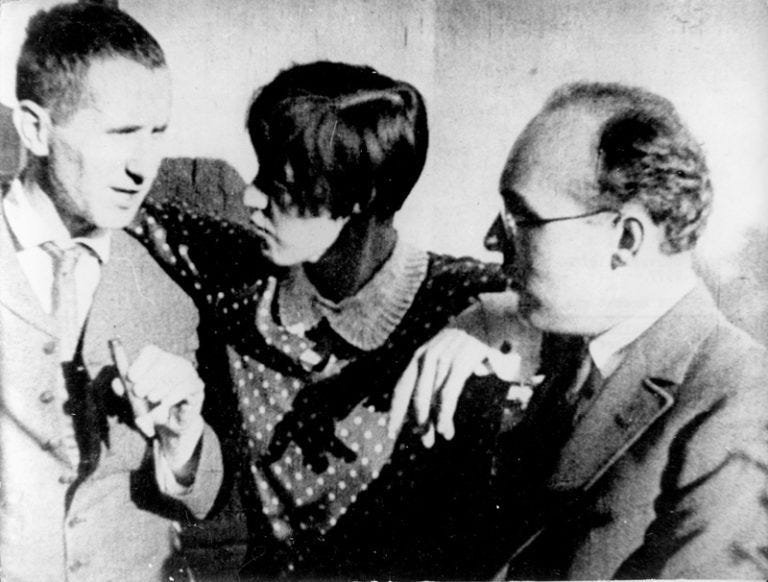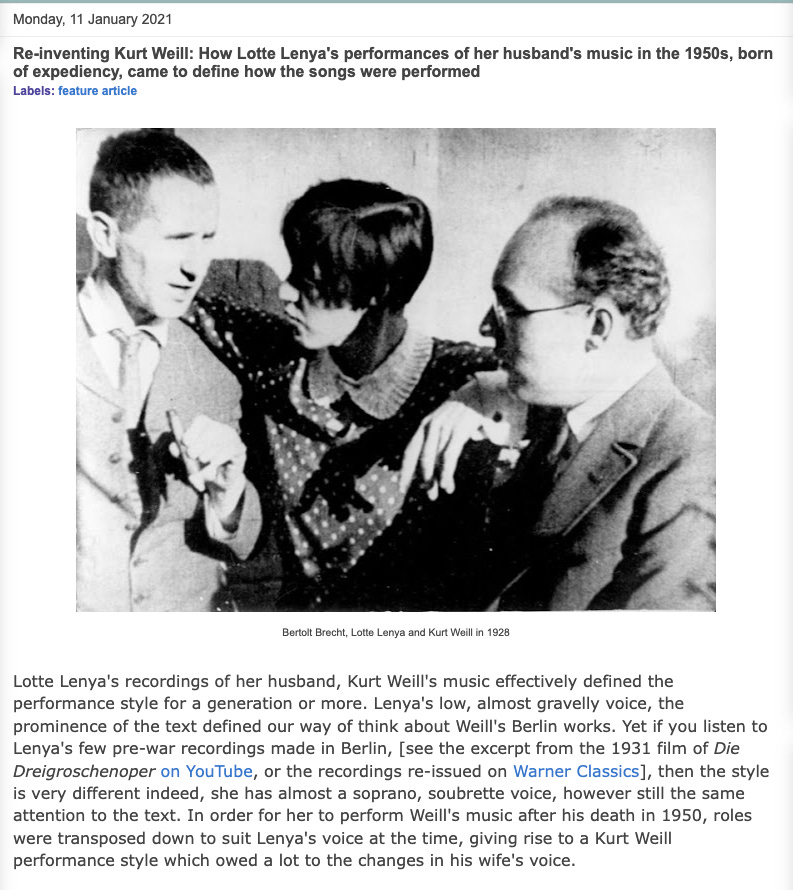During times of conflict I am always drawn to Kurt Weill and Bertolt Brecht's "Ballad of the Soldier's Wife."
It is an historic piece of Jewish art and among the first ever commercial anti-war songs, written in 1942 and first sung by Lotte Lenya.
It is a devastating song performed in an almost nursery rhyme style. The song was written, produced, and sung by Jewish artists in exile. It's precisely because these artists felt the impact of that war that it does not sound or feel anything like today's performative political soundtracks.
(Pictured: Brecht, Lenya, Weill)
The lyrics of the song, taken from Brecht's 1942 poem, describe the gifts received by the wife of a soldier from every European city in which he was stationed.
(Pictured: Bertolt Brecht)
What was sent to the soldier's wife,
from the ancient city of Prague?
From Prague came a pair of high heeled shoes,
with a kiss or two,
came the high heeled shoes,
from the ancient city of Prague.
The song reflects the human cost of war, the struggles of the families while the boys are gone, and the heartbreak when those soldiers die.
It ends:
What was sent to the soldier's wife,
from the far off Russian land?
From Russia he sent her a widow's veil,
for her dead to bewail in her widow's veil.
From the far off Russian land,
from the far off Russian land.
Lenya's recordings of her husband, Kurt Weill's, music are iconic. Her voice is instantly recognisable and like so few other performers. Here is an interesting insight into how Lenya adapted her performing style before and after leaving Berlin:
(Click to read the full piece)
I listen to Lenya frequently, but an adaptation of this great song that I particularly love came from the late, great Marianne Faithfull.
Not only did Faithfull's iconic, low, and gravelly voice suit the work perfectly (and she executed this so very well), she took great interest in the meanings behind the songs and frequently spoke of how she was inspired by these three artists.
Here she is performing Soldier's Wife, and many other works by Weill, in 1997.
Some of our greatest artistic works are derived from pain. I wouldn't call it a silver lining; after all, the toll of war is just too great to see it in any positive light. But, I'm glad we have it. And long may this tradition continue.






